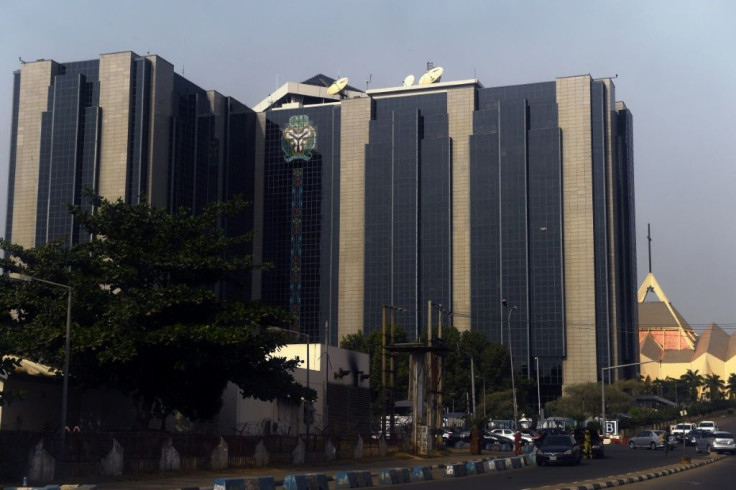Nigeria’s Lost Generation In The Global Economy

Nigeria, popularly known as the African ‘giant’, endowed with an abundance of natural resources, a population estimated to be roughly 200 million and growing, is seemingly losing its stature. Suffering the classic symptoms of Dutch Disease by relying on oil and gas revenues for up to 95% of export earnings and failing to diversify its economy, Nigeria has found itself and its citizens in a quagmire that is almost intractable. With a GDP of $397.30 billion in 2018, contributing to 0.64% of the world economy and growing at only 2.85%, what will become of Nigeria’s youth population of roughly 33,652,424?
Undeniably, Nigeria’s greatest asset is not in fact its oil and gas reserves but its human capital. The quandary, however, is how Nigeria can harness this asset and invest in it to realize its full potential. Let us first take a look at the education system as the engine for human capital development. Alarmingly, UNICEF states that 1 out of every 5 of the world’s out of school children are to be found in Nigeria. Despite primary education being free and compulsory, the education deprivation continues. The reasons being are multiple but are largely driven by socio-economic barriers and cultural norms that tend to discourage formal education, especially for girls and more so in Northern Nigeria.
Having noted this, and agreeing with the notion that human beings are the most valuable assets in terms of productivity, driving economic growth, and innovation, what will be the fate of Nigeria’s young population? Human capital development is measured by the indices of education and health. Against the advice of UNESCO that targets 15-20% budgetary allocation for education, Nigeria budgeted a mere 7.05%, leading the question of whether human capital investment is truly a priority or not. The lack of impactful efforts in the education and health sectors is inextricably linked to the rate of unemployment, which has reached a combined unemployment and underemployment rate of 43.3%, according to the National Bureau of Statistics.
It goes without saying this does not bode well for sustainable economic growth but points towards a generation lost in inertia, with a future uncertain. With massive gaps in infrastructure to support the growing population, lack of concerted efforts and often mismanagement of funds allocated to education and healthcare, there is no clear direction or benchmarking to ensure implementation of policies. Simply put, uneducated and unhealthy children will not develop into thriving and innovative adults that can contribute positively to their nation. Nigerians by nature are excellers if placed in a conducive environment; with success stories such as Olurotimi Badero, the world’s first fully trained heart and kidney specialist or Silas Adekunle, the world’s highest-paid robotics engineer. However, their success came as a result of human capital flight and honing their skills elsewhere to achieve their goals and successes. Nigeria does not develop through human capital flight but suffers greatly from the dearth of it.
So what can Nigeria do moving forward? The answer to this is multi-faceted and is above simplification, however efforts can be made. E-education is a great tool for bringing education to the youth if they cannot be formally educated in the classroom. Investing in learning management systems such as HANDOUT and equipping students with tablets on which they can learn is one such tool. Ensuring that parents with children out of school are well-versed in the consequences of such actions and these consequences being implemented is another. Re-training of teachers is also essential to ensure a good standard of education. Investing in research institutes to birth creative and homegrown solutions and innovations with other like minds will enrich Nigeria’s human capital development. For example, Nigeria is the home to a thriving technology eco-system with tech hubs such as Co-Creation Hub in Yaba and Stonebrick Hub in Abuja.
Global Start-up Ecosystem Report estimated the Lagos start-up ecosystem to be worth $2 billion; arguably the most valuable in Africa. Furthermore, with campaigns such as #Nottoyoungtorun, the political space is widening for Nigeria’s youth, giving them a chance to inject youthful innovation into policies and governance to better their futures; however, this is still at a nascent stage with giant leaps and bounds ahead to truly feel the impact. To summarise, Nigerian youth should have a seat at the decision-making table, they should be opportuned to offer home-grown solutions and put forward policies that determine their future. Most importantly, they should be players in their own lives, not substitutes on the bench watching their generation whittle away.
Sa’adiyyah Orobosa Mantu is Executive Director of Mansa Global Consulting
© Copyright IBTimes 2024. All rights reserved.




















